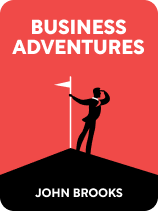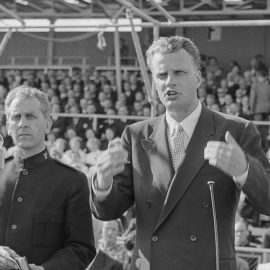

This article is an excerpt from the Shortform book guide to "Business Adventures" by John Brooks. Shortform has the world's best summaries and analyses of books you should be reading.
Like this article? Sign up for a free trial here .
What’s the history of the federal income tax? Is income tax a “rich man’s tax”?
In a survey of U.S. income tax history, John Brooks traces the roots of the federal income tax and discusses how the wealthiest people can get away with paying hardly anything at all. Much of this is due to the increasing complexity of tax laws over the years.
Keep reading to understand Brooks’s perspective on the federal income tax.
U.S. Income Tax History
In his overview of U.S. income tax history, Brooks writes that, in its original 1913 form, the income tax law was simple and straightforward, featuring graduated rates that were friendlier to those in lower income brackets. While the current law still features graduated rates, Brooks writes that amendments over the years have led to loopholes that have enabled wealthy people to minimize their taxes. These loopholes include lower tax rates for capital gains and tax exemptions for charitable foundations. Each amendment has also made the law more complex, making it harder for the average taxpayer to understand; meanwhile, rich taxpayers can pay professionals to advise them on how to use loopholes to their advantage.
(Shortform note: Tax reforms have since addressed some of these loopholes. For example, the Tax Reform Act of 1986 mandated that capital gains be taxed at the same rate as ordinary income. Still, some loopholes remain accessible only to wealthy individuals. For instance, some people take advantage of gift and estate exemptions by setting up long-term trusts—a tactic that’s only feasible for those with at least $5 million to spare.)
By 1960, the federal income tax ceased to be a rich man’s tax, with those who were making a million dollars or more paying very little or no tax at all and the middle class paying the bulk of the taxes. (Shortform note: In this regard, not much has changed since the book was published. One report claims that Amazon’s Jeff Bezos—net worth $177.3 billion as of February 2022—paid no tax in 2007 and 2011.)
The growing disparities in tax obligations prompted experts to propose ways to make the tax law more equitable, such as introducing a value-added tax and taxing expenditures instead of income. However, Brooks says that such reforms would likely lead to other inequities and make an already convoluted law even more complex. He argues that the best tax law would be one that goes back to its 1913 roots: short and simple, with no loopholes.
(Shortform note: There have been major reforms since Brooks wrote the book, notably the Taxpayer Relief Act of 1997 which made more than 800 changes to the tax law. Middle- and low-income taxpayers benefited from amendments such as a new child tax credit and education credits. In 2017, Congress passed President Donald Trump’s tax cut, which some believe to benefit the wealthiest while increasing the burden on the working class. President Biden’s Build Back Better Act aims to correct this by raising taxes on those earning more than $10 million, but the plan hasn’t gained enough support as of January 2022.)

———End of Preview———
Like what you just read? Read the rest of the world's best book summary and analysis of John Brooks's "Business Adventures" at Shortform .
Here's what you'll find in our full Business Adventures summary :
- A collection of essays about the unpredictability of corporations and Wall Street
- How businesses and economies can rise and fall based on people’s behavior
- A look at the major events that shaped the financial world as we know it






